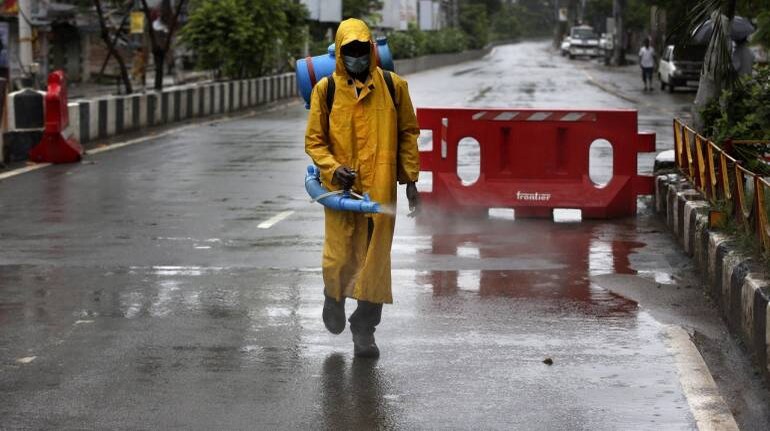Globally, more than 2.7 crore infections and over 8.8 lakh deaths have been reported due to the COVID-19 outbreak.
India has recorded more than 42.04 lakh cases of the novel coronavirus and 71,642 deaths. Of these, more than 8.8 lakh are active cases while 32.5 lakh have recovered.
Across the country, 7,20,362 samples were tested for the novel coronavirus on September 6, the Indian Council of Medical Research (ICMR) said.
Maharashtra’s COVID-19 tally remains the highest among Indian states and union territories.
The health ministry updates its numbers a day after states release their data.
Globally, more than 2.7 crore infections and over 8.8 lakh deaths have been reported due to the COVID-19 outbreak.
Here are all the latest updates:
>> India surpassed Brazil's total COVID-19 cases to become the second worst-affected country in the world, behind only the United States (US).
>> The Centre said that India has cumulatively tested nearly 5 crore people ever since the start of the COVID-19 epidemic in the country. Of these, nearly 1.33 crore tests were done in the past two weeks, while over 7 lakh tests were conducted in the past 24 hours, the government said.
>> Attorney General KK Venugopal is in self-quarantine, the Supreme Court was informed today as the Centre sought adjournment in a matter related to filling of vacancies in tribunals. Venugopal has gone into self-quarantine after one of his staff tested COVID-19 positive.
>> Delhi Metro resumed services today in a calibrated manner after being closed for 169 days due to the COVID-19 pandemic. Services were started on the Yellow Line and Rapid Metro.
>> Jawaharlal Nehru University (JNU) will have a virtual convocation in November, in view of the COVID-19 pandemic.
>> More than 200 United Nations (UN) staff members have been infected by COVID-19 in Syria as the global body steps up its contingency plans to combat the fast spread of the pandemic in the country, medical workers and officials said.







